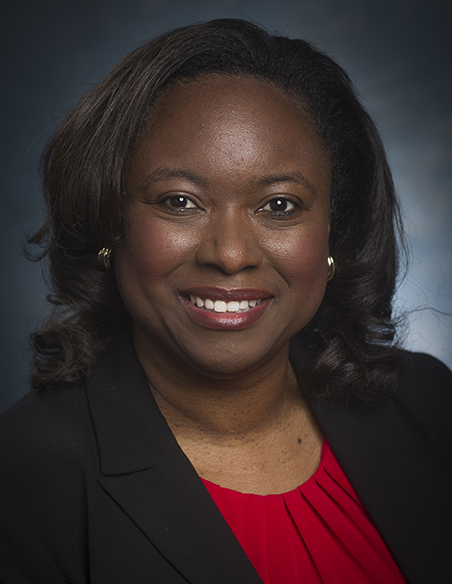NIMHD’s Conversations with Pioneers in Minority Health and Health Disparities
As we celebrate Black History month this year, we are recognizing pioneer researchers in minority health and health disparities whose career trajectory has been shaped by the NIMHD-sponsored Loan Repayment Program and subsequent research program grants. Meet Dr. Monica L. Baskin.

Monica L. Baskin, Ph.D.
Dr. Baskin is the Professor and Vice Chair for Culture and Diversity at the Department of Medicine, University of Alabama, Birmingham (UAB). She is also the Associate Director for Community Outreach and Engagement at UAB’s O’Neal Comprehensive Cancer Center. She holds a secondary faculty appointment at the Department of Nutrition Science in the UAB School of Health Professions.
Dr. Baskin specializes in population health, and lifestyle behaviors for the prevention and management of chronic disease (e.g., cancer, cardiovascular disease, diabetes). She has received the LRP award, and subsequently the R01 grant by NIMHD.
Q & A with Dr. Monica Baskin:
How is your research impacting public health?
My research focuses on community-engaged approaches to identify sociocultural and environmental determinants of health among populations at greater risk of disease, and uses this information to adapt and implement behavioral interventions for medically-underserved populations. Our community-engaged approaches have served as a model for cancer outreach and engagement across the country. We have also established the efficacy of utilizing non-professional community staff in weight loss interventions for African American women.
How has the Loan Repayment Program (LRP) impacted your career?
The Loan Repayment Program allowed me to start my career without worry about student loan debt. This afforded me opportunities to reinvest funds that would have gone to that purpose, for other professional development, including attending professional conferences and membership in professional societies. The program also allowed me to work with an established senior investigator to build preliminary data for my independent research career.
What was your motivation in becoming an independent research investigator?
My motivation for becoming an independent research investigator came when I recognized that there were very few people in my research field that looked like me. While I have had/have amazing white male mentors, many of the research questions that I was most interested in did not typically cross their minds. This was most likely due to limited personal experience rather than any malicious intent, but it still served as a wakeup call that if I wanted to pursue certain lines of inquiry, I need to be directing the research and research teams. That could only be accomplished as the Principal Investigator of the study.
What impact do you think workforce diversity has on biomedical/behavioral research?
I believe that workforce diversity has a major impact on biomedical/behavioral research. Discoveries are made when you ask new questions, apply new methods, and/or reconsider how data/information is interpreted. When you only have a homogenous group of investigators with similar lived experiences, training, etc., you miss the opportunity to challenge current paradigms and advance science. The diversity of the workforce is also needed to encourage diversity among participants in biomedical/behavioral research. In my work, it is often much easier to recruit participants who see investigators that may have similar experiences or perspectives as they do.
Is there a particular challenge you had to overcome in your career; and what advice would you give to the next generation?
It is particularly challenging being “different.” As a non-M.D. African American female behavioral researcher who conducts community-engaged research in an academic medical environment, there have been many instances when my perspectives and research foci have not been acknowledged, respected or valued. It is often not clear to me which of my aforementioned identity groups might be the trigger. When this happens, I tell myself, and would tell the next generation: “embrace your intersectionality and use it generate unique research questions that those around you are not likely to come up with”. My 20+ year academic career has also taught me the immense value of a core group of colleagues and mentors that always have your back and will lend a shoulder when you need to have a good cry. I encourage the next generation of diverse researchers to find, cultivate, and maintain their posse.
What is your vision for health equity in this new decade?
My vision for health equity in the new decade is a society where everyone has a fair opportunity to live a long and healthy life for as long as possible. I think the vision is only possible if there is effort to ensure a diverse biomedical/behavioral workforce. #DiversityMatters
Page updated Dec. 24, 2024

















